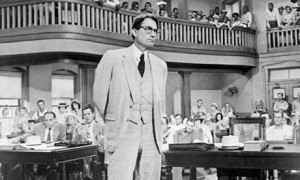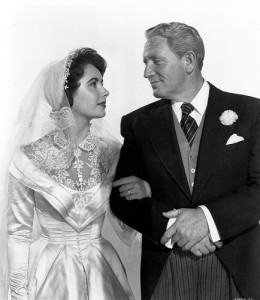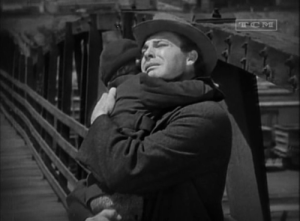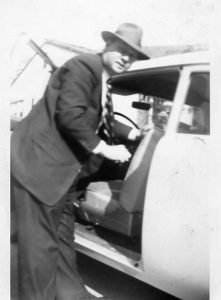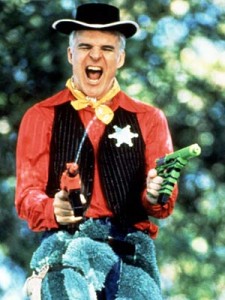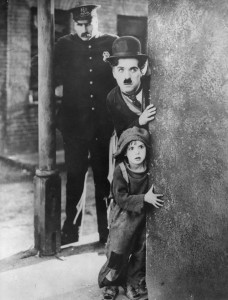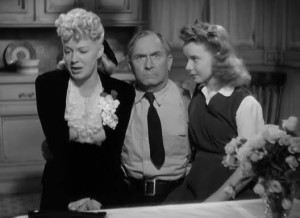James Scott Bell
@jamesscottbell
In honor of Father’s Day, I thought I’d share (with help from my film scholar son) ten of my favorite movies about dads.
FATHER OF THE BRIDE
(1950, Dir. Vincente Minnelli)
The great Spencer Tracy plays the father of the gorgeous Elizabeth Taylor, who has decided to get hitched. What follows are the stages of a bride’s father that seem as inevitable as the stages of grief: testing the young man about his financial future; meeting the in-laws; trying to keep down wedding expenses; surviving the emotional shakeups. The comedy is as fresh today as it was in 1950, and being the father of a daughter myself, I cannot help tearing up at the end. Top of the list.
TO KILL A MOCKINGBIRD
(1962, Dir. Robert Mulligan)
Gregory Peck isAtticus Finch, the widower raising his two children in Depression-era Alabama. He is a paragon of decency, honor and the values that make one a compassionate human being. One of those times when the perfect role met the perfect actor for that role. It’s also, I think, the perfect movie score.
PARENTHOOD
(1989, Dir. Ron Howard)
Steve Martin plays Gil, the flustered father of an overanxious son, who also happens to have a less than perfect dad himself (Jason Robards). The movie is spot on about the various types of parents and their quirks, with the underlying message: you never stop being a parent. Highlight for me (and most dads, too) is when “Cowboy Gil” saves his son’s birthday party from utter ruin.
KRAMER VS. KRAMER
(1979, Dir. Robert Benton)
One of the first movies, based on the novel by Avery Corman, about single fathers. Dustin Hoffman captures the spirit of the times, a 70s guy who thinks he’s got everything . . . until his wife leaves him. Hoffman and the son, played by Justin Henry, make it on their own for awhile, and then the ex-wife (Meryl Streep) returns and demands custody. This was the first male two-hanky movie.
SHANE
(1953, Dir. George Stevens)
One of the great American films of any kind, Shane is sometimes mistaken for a typical Western, with a gunslinger and bad guys. In reality, the movie is about the father, played by Van Heflin, trying to eke out a living as a homesteader with his wife and young son. Shane (Alan Ladd) comes into his world to help. It’s all mythic, and Jack Palance is one of the great villains in cinema history. But once Shane has done his work, he tells the boy to grow into a man just like his father, “strong and straight.”
LOVE FINDS ANDY HARDY
(1938, Dir. George B. Seitz)
When Lewis Stone stepped into the role of Judge Hardy, father of the irrepressible Andy (Mickey Rooney), neither he nor Louis B. Mayer thought he would become the Ward Cleaver of his generation. Stone is the quintessential father, who knew when to let Andy take responsibility for his own actions, and when to cut him some slack and teach him lessons about life. So popular were these movies that Stone and Rooney filmed short subjects for MGM, which were sort of public service announcements. The studio brass figured no one had more parental authority than Judge Hardy. You’ll even find them immortalized in the great Warner Bros. cartoon Hollywood Steps Out (1941). Of course, Judy Garland and a young Lana Turner are in this one, too.
The following films are provided courtesy of Nathaniel Bell (M.A., Film Studies, Chapman University):
THE KID
(1921, Dir. Charles Chaplin)
Chaplin’s “Little Tramp” rescues an abandoned baby boy (later to grow into the adorable Jackie Coogan) and teaches him how to survive in the slums. The ensuing comedy-drama reaches a sentimental pitch worthy of Dickens. Images of Chaplin caring for the youngster in his pathetically ramshackle apartment, cutting diapers and cooking breakfasts, are the very picture of fatherly devotion, demonstrating that love, not money, is the greatest gift a father can bestow.
THE CROWD
(1928, Dir. King Vidor)
In this silent masterpiece, a young man with grand ambitions is humbled—first as a husband, then as a father—by the struggle to earn a living in the Big City. Witnessing the change from a carefree and naive youth to a man brought low by misfortune is a pungent reminder of the responsibilities that come with being a family man and provider. The gritty details are almost oppressive (this may be the first film to actually show a toilet), but it’s worth enduring for the powerful scene in which the father is pulled back from the abyss by his five-year-old’s innocent declaration, “I believe in you, Pop.”
TARZAN FINDS A SON!
(1939, Dir. Richard Thorpe)
Tarzan (Johnny Weissmuller) and Jane (Maureen O’Sullivan) discover the infant survivor of a jungle plane crash. Naming him “Boy,” they adopt the tot and return with him to their treetop abode, where Tarzan passes down his best vine-swinging techniques. Later, when the inevitable search party comes to reclaim Boy, Tarzan’s fatherly instincts—powerful as a gorilla’s—kick in full force. For all its creakiness, this 1939 potboiler is probably one of the best demonstrations of that primal paternal impulse to defend your children at all costs.
THE MIRACLE OF MORGAN’S CREEK
(1944, Dir. Preston Sturges)
Sturges brings his withering satirical sensibilities to bear on the American small town in this WWII screwball classic. The entire cast is brilliant, but it’s William Demarest who steals the picture as Edmund Kockenlocker (the name alone, as James Agee once suggested, places him firmly in cartoon strip country), the trash talking, pipe smoking town constable whose protection of his two teenage daughters verges on the psychopathic. His favored technique for fending off potential suitors is taking a wild kick, missing the mark, and falling flat on his back.
Happy Father’s Day! Enjoy!
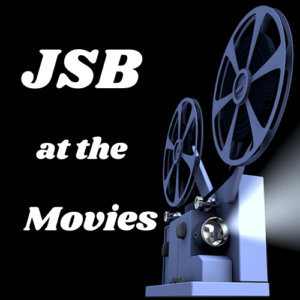 Happy Father’s Day to all the dads out there. We have a rich history of movies about fathers, from King Vidor’s silent classic,The Crowd, to Judge Hardy (Lewis Stone) in the Andy Hardy series (keeping Mickey Rooney on the straight-and-narrow), to A River Runs Through It and Finding Nemo. So many others. Today I thought I’d share few favorite clips. Enjoy!
Happy Father’s Day to all the dads out there. We have a rich history of movies about fathers, from King Vidor’s silent classic,The Crowd, to Judge Hardy (Lewis Stone) in the Andy Hardy series (keeping Mickey Rooney on the straight-and-narrow), to A River Runs Through It and Finding Nemo. So many others. Today I thought I’d share few favorite clips. Enjoy!
